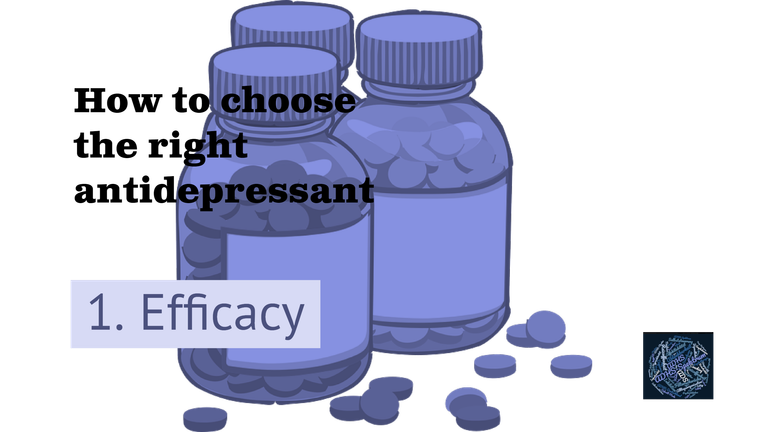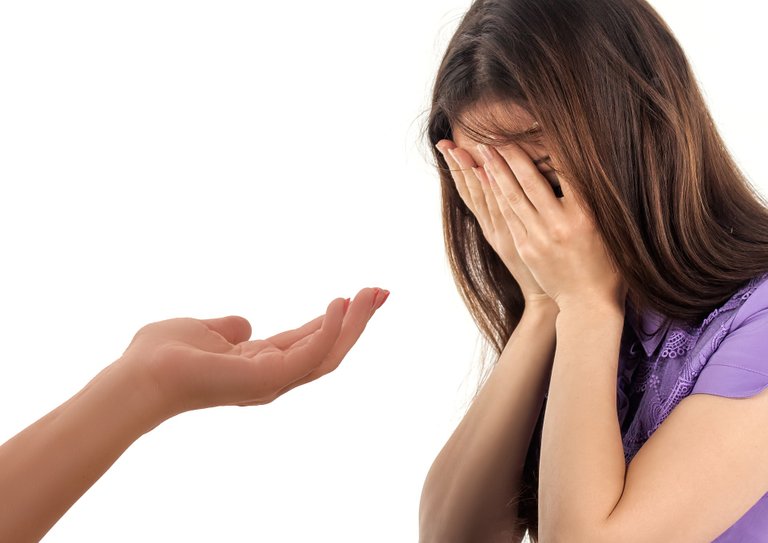How do I find the right medication for depression, anxiety or sleep disorders with an antidepressant?
.png)
For many people, the criteria that a doctor or psychiatrist chooses when selecting the right drug therapy (in addition to education, psychotherapy and other non-drug therapies of depression) are completely incomprehensible.
In this small number of "how-to" blog post I would like to explain the criteria for selecting the right antidepressant. In this way, in the event of a case, one can then ask the doctor for oneself or for relatives a little more competently in the selection interview and arrive at the best possible choice of therapy.
Criteria for the choice of an antidepressant medication
- Evidence of efficacy in studies
- Compatibility / side effect profile of the antidepressants
- Therapeutic safety, e. g. in case of overdose
- Pretreatments with antidepressants or earlier response to the medication
- Simplicity of use
- Experience of the physician with the respective medication = favourite preparations of the physician
- severity of depression or form of depression
- Age of the patient (e. g. other dosage and preparations in elderly people)
- further diseases of the patient
- Should an increase in drive or rather a calming / sleep-promoting effect be achieved?
- Patient's wish = The patient naturally has the last word
- costs
1 . Evidence of efficacy of antidepressant medication
Of course, doctors should only use drugs that have proven to be effective in scientific studies. However, it is important to know that most studies are designed as registration studies of the pharmaceutical industry in such a way that an effect can probably also be described which is superior to a control group with placebo.
.jpg)
However, this does not mean that it is the same in everyday use for patients in everyday routine.
In principle, the relatively newly approved modern antidepressants have a good efficacy in moderate to severe forms of depression.
However, what is an improvement ist subject to very individual choices...
Improvement of clinical symptoms (measured by symptom/complaint scales)
Subjective assessment of the patient and / or his relatives (external assessment)
relapse prevention (i. e. does a new depressive episode occur?)

In simple terms, the antidepressants commonly used today are effective when used in the following situations
at least moderate depressive episode (i. e. not necessarily in mild depression)
can be particularly helpful in the case of familial forms of depression
can help with repeated (= recurrent) depressions well
reduce the risk of relapse in recurrent depressions
In addition, family doctors in particular use antidepressants when there is an acute crisis or symptoms such asinsomnia
anxiety
ocd
chronic pain (i. e. as a pain modulator, less as an antidepressant)
insomnia
Here, a targeted antidepressant effect of the medication is not mainly used, but rather a partial aspect of the effect or even side effects such as fatigue.
To be continued...
Pixabay photos Creative commons
Ui, wichtiges Thema.
Ich hoffe, es gibt noch einen Artikel zum Thema Antidepressiva und ADHS?
Kommst Du eigentlich an wissenschaftliche Veröffentlichungen (also Journale bzw. die Online-Versionen) ran? Ich als Privatperson ja leider gar nicht. ;)
Bei der Kombination "Antidepressiva bei Schlafstörungen" werde ich zugegebenermaßen ein bißchen nervös. Aus (leider) eigener Erfahrung möchte ich sagen: schwieriges Thema, auch wenn ich nicht der Musterpatient bin (denke ich). Jedenfalls hatten wir im Sommer letzten Jahres auch damit herumprobiert, mit keiner wahrgenommenen Wirkung. Öhm, ich muß wohl doch meine Medikamentenkarriere des letzten Jahres noch mal zusammenfassen, ich bin gespannt, was Du dazu meinst.
Diesen Post gab es ja auch auf Deutsch... Zu ADHS und Antidepressiva ist es so eine Sache. Eigentlich machen Antidepressiva ziemlich wenig Sinn bei ADHS. Weil es um affektive Labilität bzw. die sog. rejection sensitive dysphoria geht. Gerade wenn Antidepressiva nicht wirken, denke ich ja an ADHS bei meinen "Depressiven" in der Klinik. Natürlich gibt es aber durchaus Indikationen auch bei ADHS PLUS Depression oder so Antidepressiva einzusetzen...
Ich hab eh das Gefühl, daß ich einige Beiträge von Dir übersehe. :(
Ich hatte irgendwie gedacht, Du hast nur ADHSler "in der Mache". ;o)
Ja und Nein. Für mich ist ja fast ALLES ADHS :-) Ich schreibe aber auch gerne mal ganz was Anderes. Bzw. hier jetzt eigentlich etwas, was ich auf meiner Webseite web4health.info nutzen wollte. So eine Art Content-Recyling :-)
Und was der gute Homer sagt...
oder aber:
oder auch:
Michael Jordan soll übrigens auch ADHS haben...
Shit , das war ja der falsche Thread / Post...